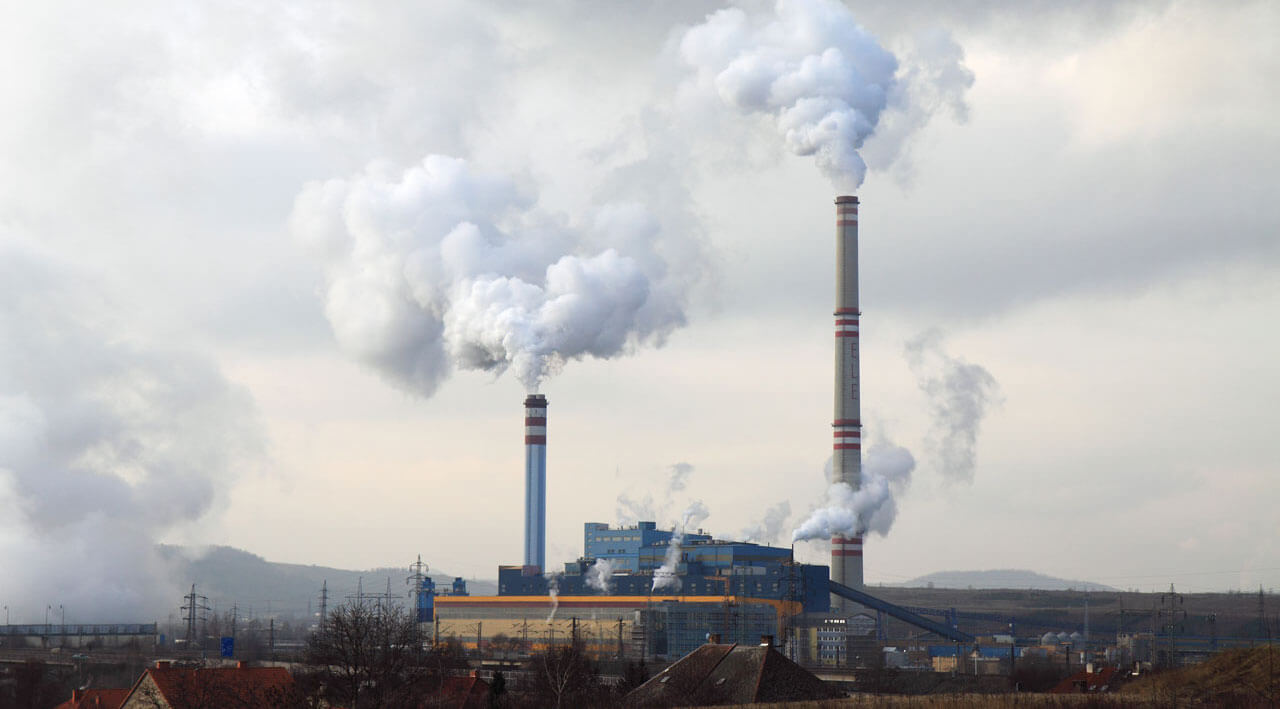
Climate activists are optimistic that they may have finally reached a tipping point solution on climate action. For years the science and environmental community have attempted to bring attention to the warming climate by describing it as one of the greatest threats to mankind. There has been a growing fear that if the world doesn’t decisively move to reduce the burning of fossil fuels and the resultant greenhouse gas emissions, the world will reach a point of no return. The most recent climate report compares global warming to an out of control speeding freight train.
Climate advocates finally have something to celebrate after a bipartisan climate bill was introduced in Congress on November 28th. The bill, ‘‘Energy Innovation and Carbon Dividend Act of 2018,’’ is a breakthrough climate solution that would immediately put a price on carbon. The sponsors are Republican Representatives Francis Rooney of Florida, Brian Fitzpatrick of Pennsylvania, Democratic Representatives John Delaney of Maryland, Ted Deutch and Charlie Crist of Florida.
The bill’s sponsors predict that by gradually adding a fee to coal, oil and gas at the source, it will quickly reduce the use of these greenhouse gas producing fossil fuels. Companies, industries and consumers will seek cheaper renewable alternatives if the cost of fossil fuels increase.
It’s predicted as the pricing on carbon is gradually implemented, it would reduce greenhouse emissions by one third within ten years and 90% by 2050 compared to 2015 levels.
Columbia University economist Noah Kaufman said the carbon pricing bill “would provide a substantial boost to low carbon generation sources including solar, wind and nuclear energy, and virtually eliminate the use of coal in the U.S. electricity system by 2030.”
Perhaps more importantly, as the price of fossil fuels increases from the additional fees, consumers will be reimbursed for their increased costs. By refunding the increased fossil fuel costs to consumers on a monthly basis it holds them harmless from economic pain. Every dollar generated from the added fees on carbon sources will be fully refunded to consumers excluding administrative costs. Combining increased fossil fuel costs with consumer dividends offers a bipartisan approach that is appealing to both progressives and conservatives.
By matching the increased fossil fuel costs with a dividend to consumers makes this a revenue neutral bill. That feature is especially appealing to many Republicans. By funneling all the revenue back to consumers, it prevents growing the size of government. In addition, this climate solution is truly a Republican friendly “market driven” plan. No regulations, no increased taxes, just a market pass through of the real costs of greenhouse gas pollution while protecting consumers.
Democrats are touting the refund assistance as it provides low and middle income Americans an opportunity to affordably move to renewable alternatives. Since typically low and middle income consumers spend a greater percentage of their income on fossil fuels, the dividend is skewed to specifically benefit these consumers. This prevents the carbon fee from resulting in a regressive impact on these consumers.
The world is approaching a point of no return on curbing greenhouse gas emissions and the carbon pricing and dividend offers a viable and speedy solution. Polling suggests the public is ready to embrace a climate solution. In a recent Yale University poll, 70 percent of Americans said, “they support requiring fossil fuel companies to pay a tax on carbon.” Iowans in the same poll support a carbon tax by a margin of 63 percent. This positive attitude on carbon pricing reaches across both urban and rural Iowa. Only in two of Iowa’s most rural counties does the support fall to less than a majority.
In the last several months, extreme weather events have raised the public’s awareness and concern about the contributing factor of climate change.
The 2018 Atlantic hurricane season was the third consecutive above-average year for damages. Monster hurricane Florence was one of eight Atlantic storms that caused over $33 billion in damages.
Worldwide wildfires burned out of control on multiple continents. British Columbia experienced the largest area burned in history. Wildfires in California destroyed more structures, and their largest wildfire consumed a record number of acres as well.
In the last four years the world has recorded the hottest temperatures in history. Combine that with rising sea levels, record floods in the Midwest and drought in the West provides an incentive to act now.
The Intergovernmental Panel on Climate Change’s recent report suggested time is quickly running out on solving the climate crisis. It’s time for action.
Putting a price on carbon is seen by many as a silver bullet to slow and eventually reverse a warming climate. However, it’s the political climate that has suddenly changed as climate connected disasters have grabbed the headlines. That change in public awareness of the climate threat gives the carbon pricing proposal the potential to drive the political will to act.
As President Trump denies the reality of climate change and obstructs actions to slow global warming Congress must act. This bipartisan bill suggests there are both Democrats and Republicans that are willing and able to generate the political will to find climate solutions.
by Rick Smith
Posted 12/7/18
Politics

6 terrifying things that could happen if the Comstock Act is used to target abortion
Does 1873 sound like a really, really long time ago? Well, that’s because it is—but if Republicans and far-right anti-abortion activists have their...

Iowa parents explain how ‘fetal personhood’ would harm IVF
Lyndi Buckingham-Schutt and her husband Andy Schutt, both Des Moines residents, always knew they wanted to have children. When Lyndi was 30, they...
Local News

No more Kum & Go? New owner Maverik of Utah retiring famous brand
Will Kum & Go have come and gone by next year? One new report claims that's the plan by the store's new owners. The Iowa-based convenience store...

Here’s a recap of the biggest headlines Iowa celebs made In 2023
For these famous Iowans, 2023 was a year of controversy, career highlights, and full-circle moments. Here’s how 2023 went for the following Iowans:...






